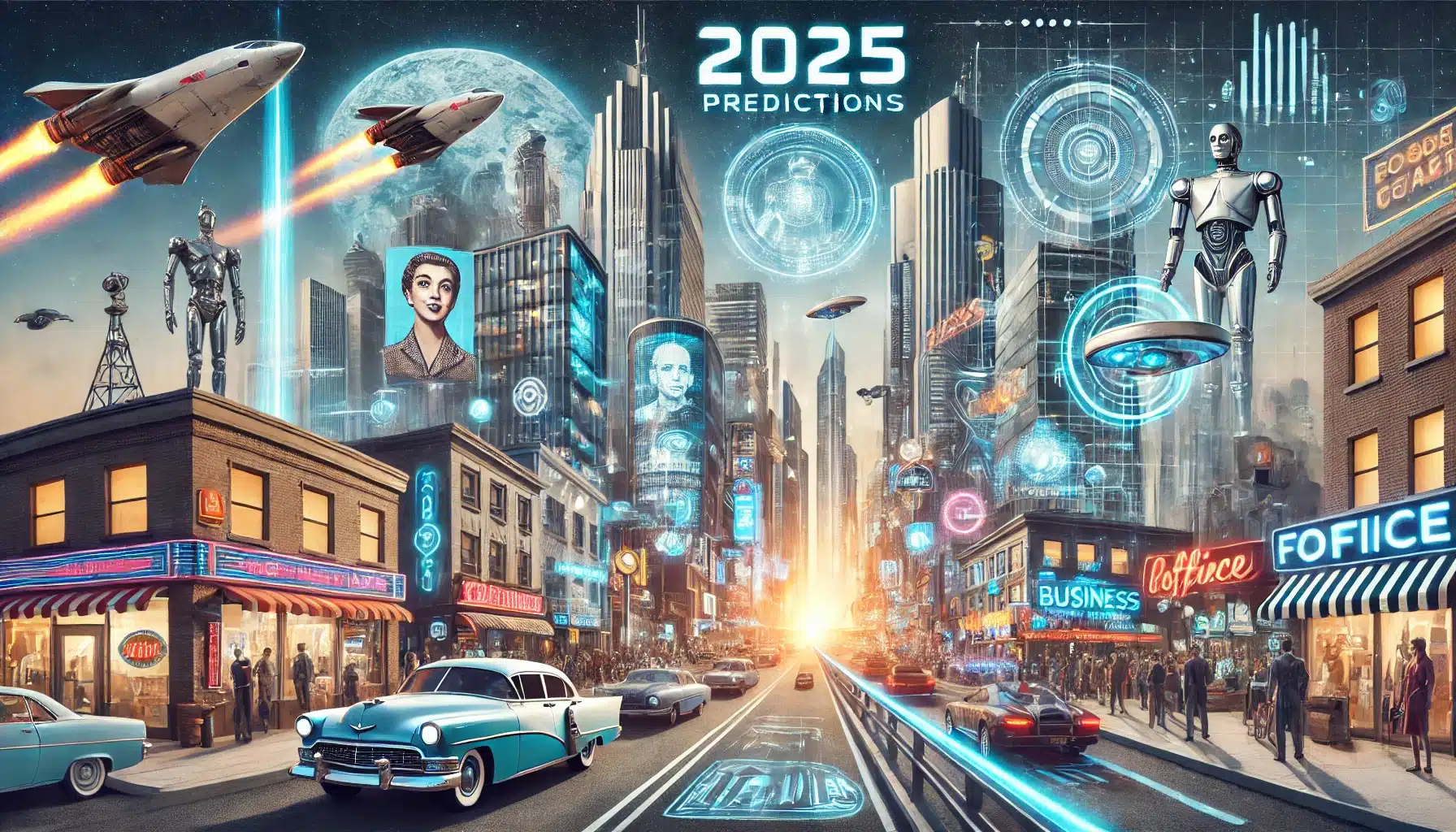Economists and business leaders of the past have always speculated about what the world would be like in the future.
While in 2025 we’re still not travelling in flying cars, or able to cure serious diseases by taking a wonder pill, there is still some impressive innovation going on.
Looking back at the forecasts, some were spookily accurate, and others wildly off the mark.
Here are some of the most fascinating business predictions from past decades and how they compare to reality.
Looking for a job? Visit whatjobs.com today
1950s: The Age of Automation and the 4-Hour Workday
Post-war optimism fueled grand visions for the future.
Many experts of the past believed automation would take over most jobs, leaving humans with unprecedented leisure time.
The economist John Maynard Keynes had earlier predicted a 15-hour workweek by the 21st century, and futurists in the 1950s echoed this, expecting businesses to thrive on minimal human labor.
What really happened?
While automation has transformed industries, the workweek remains largely unchanged.
Some companies have embraced a four-day week for workers, but big companies like Amazon and JP Morgan are apparently looking to exert more control over their workers, ordering them back to the office five days a week.
Instead of mass job elimination, technology has shifted labor into new sectors like IT and services.
Looking for a job? Visit whatjobs.com today
1960s: Space Colonies and Lunar Business Hubs
The Space Age spurred predictions that by 2025, businesses would operate on the Moon, Mars, and beyond. Magazines envisioned futuristic headquarters in space, and companies planned for lunar mining and orbital factories.
There was even an expectation a “Lunar Olympics” would have taken place.
What really happened?
While private space exploration is booming with companies like SpaceX and Blue Origin, we are far from having permanent space-based businesses.
However, commercial ventures in satellite technology, asteroid mining proposals, and space tourism are edging closer to reality.
1970s: The Paperless Office and the End of Cash
The rise of early computing led many to believe offices would be entirely paperless by the 21st century. Predictions also included the disappearance of cash, with all transactions conducted via digital means.
What really happened?
While digital banking and contactless payments dominate, cash still exists.
The “paperless office” remains an aspiration rather than a reality, as paper use has decreased but not disappeared entirely.
1980s: The Rise of Mega-Corporations Controlling Everything
Corporate mergers and globalization in the 1980s led many to speculate that by 2025, a handful of giant corporations would dominate the world.
Cyberpunk fiction, like Blade Runner, portrayed dystopian futures where corporations had more power than governments.
What really happened?
While tech giants like Amazon, Google, and Apple wield enormous influence, regulations and competition prevent absolute corporate control. Decentralized finance and startups continue to disrupt industries.
Hiring? Post jobs for free with WhatJobs
1990s: The Dot-Com Boom’s Vision of an Internet-Only Economy
With the rise of the internet, some past experts predicted that physical businesses would become obsolete, replaced entirely by online commerce.
The dot-com era was filled with visions of virtual shopping malls and fully remote workplaces.
What really happened?
E-commerce is dominant, but brick-and-mortar stores still exist.
Remote work has surged, but in-person businesses remain crucial in many industries.
The hybrid model turned out to be the reality.
2000s: AI and Robots Running the Business World
The 2000s saw bold predictions about AI taking over management roles, handling investments, and even making business decisions without human intervention.
Movies like I, Robot painted a future where intelligent machines controlled industries.
What really happened?
AI is deeply integrated into business but serves as an assistant rather than a ruler. While algorithms influence stock trading and customer service, human oversight remains essential.
Need Career Advice? Get employment skills advice at all levels of your career
The Verdict: Some Hits, Many Misses
Business predictions for 2025 from the past were a mix of optimism, fear, and technological speculation.
While automation, AI, and digital transformation have reshaped industries, the human element remains vital. The future may still hold surprises, but if history has taught us anything, it’s that predicting business decades in advance is an imperfect science.




